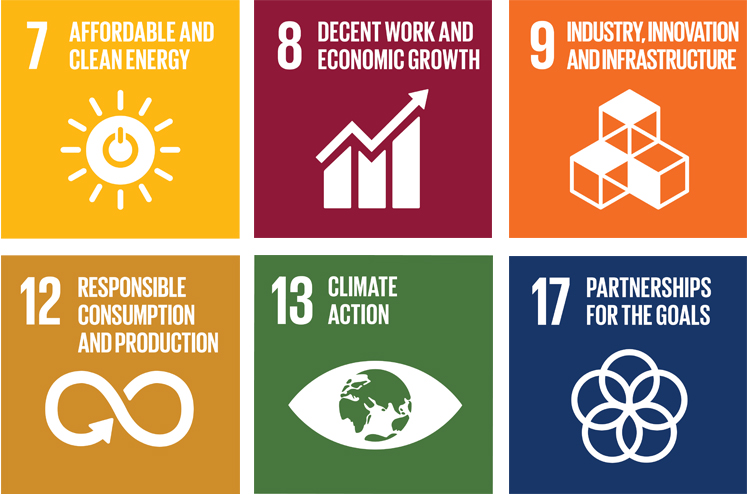Since October 2020, ROSATOM has been a member of the United Nations Global Compact. It is the largest corporate social responsibility and sustainable development initiative for businesses across the world. Today, it unites over 13,000 companies from more than 160 countries.
In its activity ROSATOM is guided by the global agenda in the field of sustainable development and adheres to the Ten Principles of the UN Global Compact. ROSATOM influences achievement of the UN sustainable development goals (SDG) through sales of its products and financial and economic results of the activity as well as ensuring robustness of internal processes in the field of the environmental impact, social sphere and quality of management.
Safety of technological solutions, labor conditions and the environment are the unconditional priority of ROSATOM and all its enterprises. Besides, ROSATOM is a socially responsible company which activity produces substantial economic effect on the situation in many regions of the Russian Federation and a number of foreign countries where NPPs and other facilities are being built. Expanding operations in Russia and in foreign markets, ROSATOM seeks to solve tasks of long-term and sustainable development considering features of each specific region.
Nuclear technology forms positive systemic changes for quality of living of humans. At the present time, the product portfolio of the Russian nuclear sector consists of not only of traditional solutions in the field of nuclear power but of new areas such as nuclear medicine, nuclear science and technology centers based on research reactors, complexes for radiation processing of products etc. Besides, ROSATOM expands operations in a number of allied non-nuclear areas: wind power, composite material fabrication, additive technology etc.
It is necessary to note that NPP construction and operation activities greatly contribute to development of economy and infrastructure of the country, both for the Russian Federation and foreign customer-countries, while ensuring long-term sustainable work-load of high-technology productions, orders for allied sectors and creation of jobs for the population with a corresponding contribution to GDP from the profits of the industry and taxes. NPP construction and operation creates jobs for several thousand people at the plant itself and in nuclear infrastructure.
By and large ROSATOM activities influence all 17 SDGs. However, given the scale of influence and features of the Corporation’s activity, the key goals are the following: No. 7 (“Affordable and Clean Energy”), No. 8 (“Decent Work and Economic Growth”), No. 9 (“Industry, Innovations and Infrastructure”), No. 12 (“Responsible Construction and Production”), No. 13 (“Climate Action”) and No. 17 (“Partnership to Achieve the Goal”).

Table. Contribution in achievement of the UN Sustainable Development Goals in detail
